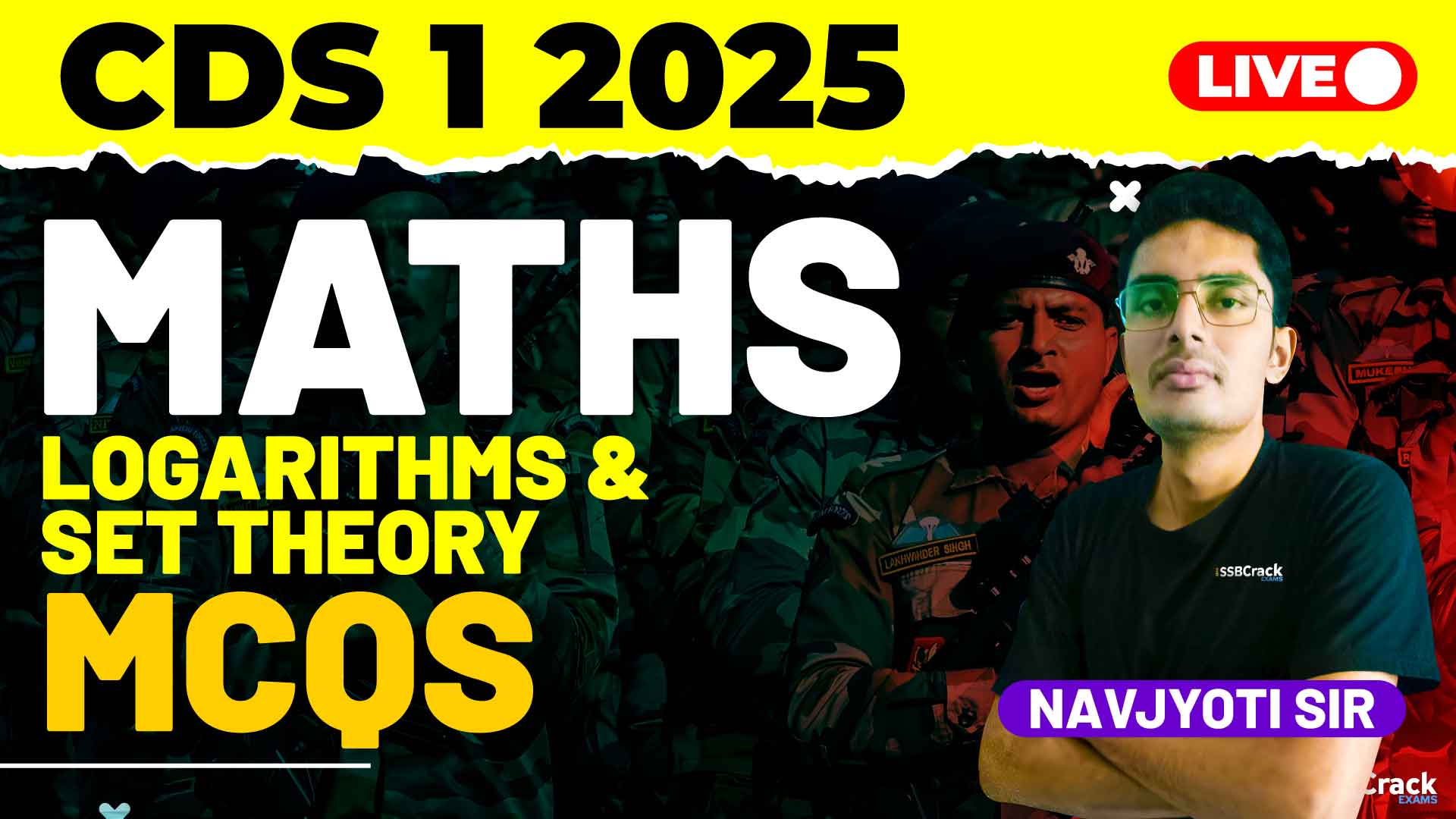Logarithms and Set Theory are essential topics in the Mathematics section of the Combined Defence Services (CDS) exam. A recent class was conducted to help aspirants strengthen their understanding of these topics through concept-based learning and rigorous practice. The session involved solving multiple-choice questions (MCQs) from previous years as well as expected questions to help students get familiar with the types of problems they might encounter in the exam.
Importance of Practicing MCQs
Practicing MCQs is one of the most effective ways to improve problem-solving skills. Here’s why:
1. Builds Conceptual Understanding
- Solving different types of questions helps grasp fundamental concepts.
- Exposure to various question formats enhances logical reasoning.
2. Improves Speed and Accuracy
- Timed practice increases efficiency in solving questions.
- Repeated practice reduces errors and enhances confidence.
3. Identifies Strengths and Weaknesses
- Attempting a range of problems highlights areas that need improvement.
- Focused revision ensures better retention and recall during exams.
4. Familiarizes with Exam Pattern
- Previous years’ questions provide insights into the difficulty level and question types.
- Practicing under exam-like conditions reduces anxiety and boosts confidence.
5. Develops Smart Problem-Solving Techniques
- Learning to eliminate incorrect options quickly improves accuracy.
- Understanding common question traps helps in avoiding mistakes.
Essential Strategies for Preparation
A structured approach is necessary to master Logarithms and Set Theory for the CDS exam. Here are some key strategies:
1. Understand Basic Concepts
- Focus on the fundamentals of logarithmic operations and set relations.
- Learn the significance of logarithms in simplifying calculations.
- Understand Venn diagrams and set operations to solve related problems easily.
2. Practice Regularly
- Solve a variety of problems, starting from basic to complex ones.
- Use previous years’ question papers to get accustomed to the exam pattern.
3. Manage Time Effectively
- Work on improving speed while maintaining accuracy.
- Learn shortcuts and smart techniques to simplify complex calculations.
4. Analyze Mistakes
- Review incorrect answers and understand where errors occurred.
- Avoid common mistakes such as misinterpreting values or misapplying concepts.
5. Use Quality Study Materials
- Refer to standard textbooks, online resources, and mock tests for comprehensive preparation.
- Make concise notes for quick revision before the exam.
6. Take Mock Tests
- Attempt full-length mock tests to simulate real exam conditions.
- Focus on accuracy to minimize negative marking.
Conclusion
The class on Logarithms and Set Theory provided students with valuable insights into solving related problems effectively. Regular practice, smart preparation strategies, and efficient time management are key to excelling in these topics for the CDS exam. With dedicated effort and a well-planned study approach, aspirants can enhance their performance and improve their overall score. Stay consistent, keep practicing, and success will follow!







